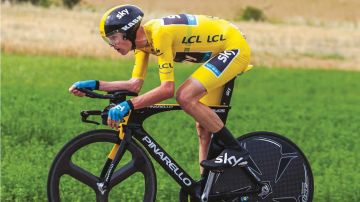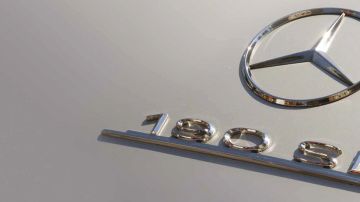For many science is a subject they studied in school, then confined to the history books. But that needs to change if the world is to find answers to some of the most troubling questions it has ever faced. Thankfully it is. Slowly. And one country that, perhaps, is making progress is Germany
THE world is waking up to the fact that science may well prove to be our salvation.
We face dwindling natural resources and a rising population which means society must agree where our planet is heading in the 21st century. For the science of today is often the technology of tomorrow.
What the world cannot quite agree on is how to convince today’s generation of young people to see science as a career.
The alarm bells started ringing many years ago.
The European Commission warned in 2008 that not enough young people were opting to study science, technology, engineering or maths after the age of 16 – and feared if nothing were done, there would be a shortage of highly-skilled scientists, engineers and technicians.
It recommended radical changes in the way science was taught in schools, moving away from being able to reel off facts, which was largely blamed for the declining appetite for science, to a style which encouraged pupils to pose the questions and, in turn, increased their understanding.
Five years later, in 2013, 100-plus delegates from 58 countries were still talking about the problem at a global conference of science academies.
But Germany seems to have been trying to address the problem since 2006.
Freie Universität Berlin Professor Dr Petra Skiebe- Corrette founded TuWaS! in 2006 after she had seen a similar model working wonders in Sweden.
Today 144 schools in Berlin, where the campaign started, are involved.
Dr Anne-Gret Iturriaga Abarzua, Communications Manager at INEOS in Köln, was one of its champions when the Chamber of Commerce brought TuWaS! to Köln in 2008.
The TuWaS! programme encourages primary and secondary school children to ask questions rather than receive ready-made answers.
With Anne-Gret’s passion for what could be achieved – and the financial backing of INEOS – schools quickly got involved.
“We are now really seeing the impact of TuWaS!” said Anne-Gret who was invited by Professor Skiebe to speak at the 10-year TuWaS! celebration last month at the Brandenburg Academy of Science. “We have even got a logistics and storage unit for TuWaS! in Koln now.”
In Germany, inquiry-based science education is now part of the curriculum in many schools, and the TuWaS! programme for children aged 6 to 12 has now been formally adopted by four of the 16 federal states in Germany.
Teachers attend a one-day seminar during which they are taught the natural science and technical experiments first. They then return to the classroom, armed with a school year’s worth of experiments and the confidence to teach them.
As the biggest industrial employer in Köln, INEOS is still heavily involved.
“As a global chemical company, we know the importance of scientific and technological education early, and that is when they are six,” said Anne-Gret. “These partnerships help us as a company, as an industry and also as a developed industrial country to attract young people – especially girls – who are curious, enthusiastic and motivated to make the world a better place through science.”
INEOS in Köln is the biggest financial supporter in the Rhineland sponsoring almost half of the 70 schools which have adopted the TuWaS! programme. INEOS employees act as ambassadors, and have so far reached more than 6,000 children.
“INEOS is heavily involved but it doesn’t want to shoulder the burden completely,” said Anne-Gret. “We want more companies to help shoulder the responsibility.”
But the influence of TuWaS! does not end there.
Anne-Gret is now keen to introduce TuWaS! to other German-speaking countries such as Austria and Switzerland.
And INEOS is now considering whether or not a similar programme could be introduced into British schools.
INEOS currently sponsors the Royal Society of Chemistry’s, Chemistry Olympiad to inspire thousands of young people across the UK to take up careers in science.
It would certainly be welcomed by the Royal Society and the Confederation of British Industry which jointly produced a guide for businesses and teachers in May to help them form beneficial bonds.
It said businesses needed to work more closely with schools.
“Most young people attribute their decision to pursue STEM subjects to an inspirational teacher, so working with teachers is the best way to secure the UK’s future STEM workforce,” said Professor Tom McLeish, chairman of the Royal Society’s Education Committee.
Neil Carberry, CBI Director for employment and skills policy, said many firms did already work closely with schools in their communities, but more could always be done to inspire pupils to pursue these critical subjects.
“Many industries rely on a supply of science talent, at both graduate and technician level, but shortages are appearing that will hold our economy back,” he said.
Whatever happens in the UK, INEOS will continue to support the TuWaS! programme in Germany.
“Our secret is all about building relationships,” said Anne-Gret. “We want to attract the best of the best, create an understanding for industry and raise our profile at the same time.”


















